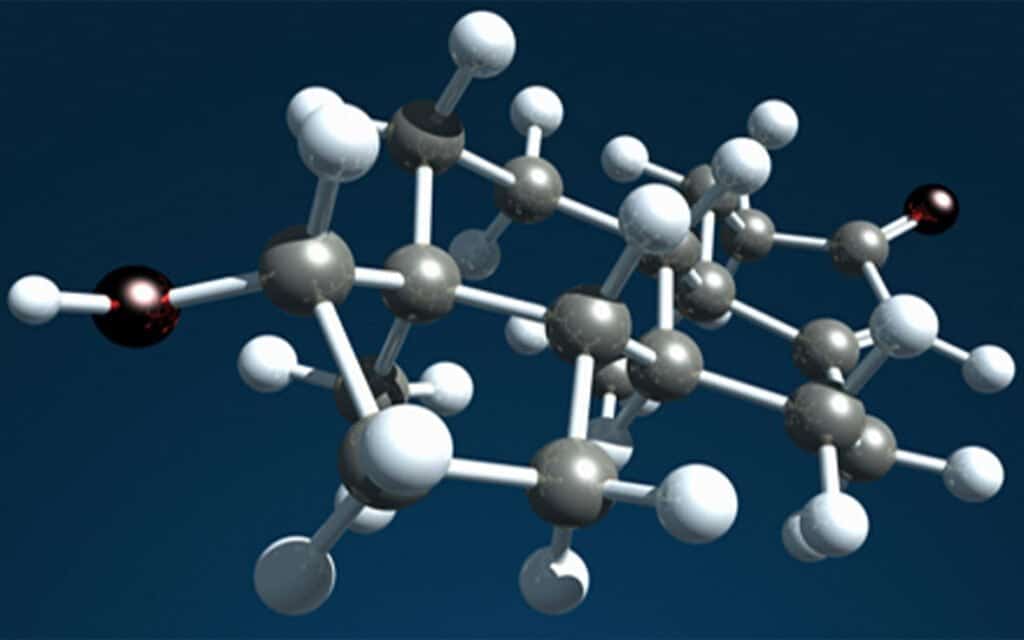New data presented at the recent European and International Congress on Obesity suggests that testosterone therapy may be a useful treatment for men suffering from obesity.
The research notes that long-term testosterone therapy may, in some cases, be as effective as bariatric surgery in morbidly obese men.
Low testosterone levels have been consistently found in severely obese men, and obesity has also been noted as a common symptom of hypogonadism, a clinically diagnosed condition in which men cannot produce average levels of testosterone. This complicated two-way relationship between obesity and low testosterone levels has been called a “vicious cycle” by some researchers.

The research
Farid Saad, from the UAE's Gulf Medical University School of Medicine, has been studying the relationship between testosterone therapy and obesity in men for over a decade. His latest research examines 15 years of data from a German registry that tracked men with hypogonadism.
Saad and his colleagues looked at data from 471 obese men with hypogonadism, 276 of whom received long-term testosterone therapy, while 195 chose not to undergo hormone treatments, thus serving as a functional control group.
Testosterone therapy and obesity in men: the results
Over a follow-up period of about eight years, the data show that the testosterone group he lost an average of 23 kg (50 lbs) in weight. Men in the control group who were not receiving testosterone therapy showed a average weight gain of 6 kg (13 lbs).
Waist circumference, body mass index, and visceral fat measurements improved in the testosterone therapy group compared to the control group. Even more surprising, the overall mortality rate of the testosterone group was significantly lower than the control by the end of the follow-up period: 7,6% versus 32,3%. Furthermore, over 20% of the men in the control group developed type 2 diabetes during the study period. No men in the testosterone therapy group developed the metabolic disorder in the same time period.
Long-term testosterone therapy in hypogonadal men has resulted in profound and prolonged weight loss. It may have contributed to the reduction of mortality and cardiovascular events. Untreated men with hypogonadism gained weight instead.
Farid Saad, Gulf Medical University School of Medicine
The results on more severe obesity
The researchers found that 76 of the men with obesity studied could be classified in the "class 3" category, at highest risk. This category is occasionally referred to as “morbid” obesity. In these cases, bariatric surgery is often recommended as an effective treatment. Of these 76 men with class 3 obesity, 59 received testosterone therapy. The remaining 17 served as a control. In this subgroup, the testosterone cohort lost an average of 30 kg (66 lb). The control group gained an average of 5 kg (11 lb).
Saad notes that the weight loss and the overall metabolic improvements seen in this after testosterone therapy resemble the benefits seen with bariatric surgery. This suggests that testosterone therapy may be a useful alternative treatment option.
Long-term testosterone therapy in men with hypogonadism and the most severe level of obesity led to profound weight loss. Results of a magnitude comparable to that obtained with metabolic surgery (obesity). Side effects and complications can be in favor of testosterone therapy.
Farid Saad, Gulf Medical University School of Medicine
Testosterone therapy instead of bariatric surgery?
These findings obviously require broader validation. It is needed before testosterone therapy can be widely recommended as a treatment for obesity in men. The data collected in this new research is limited to a very specific cohort of older men with clinically diagnosed hypogonadism. However, the surprising results justify extending the research. And above all to be optimistic that testosterone therapy can benefit all men with obesity.
The new research was recently presented at European and international congress on obesity.


